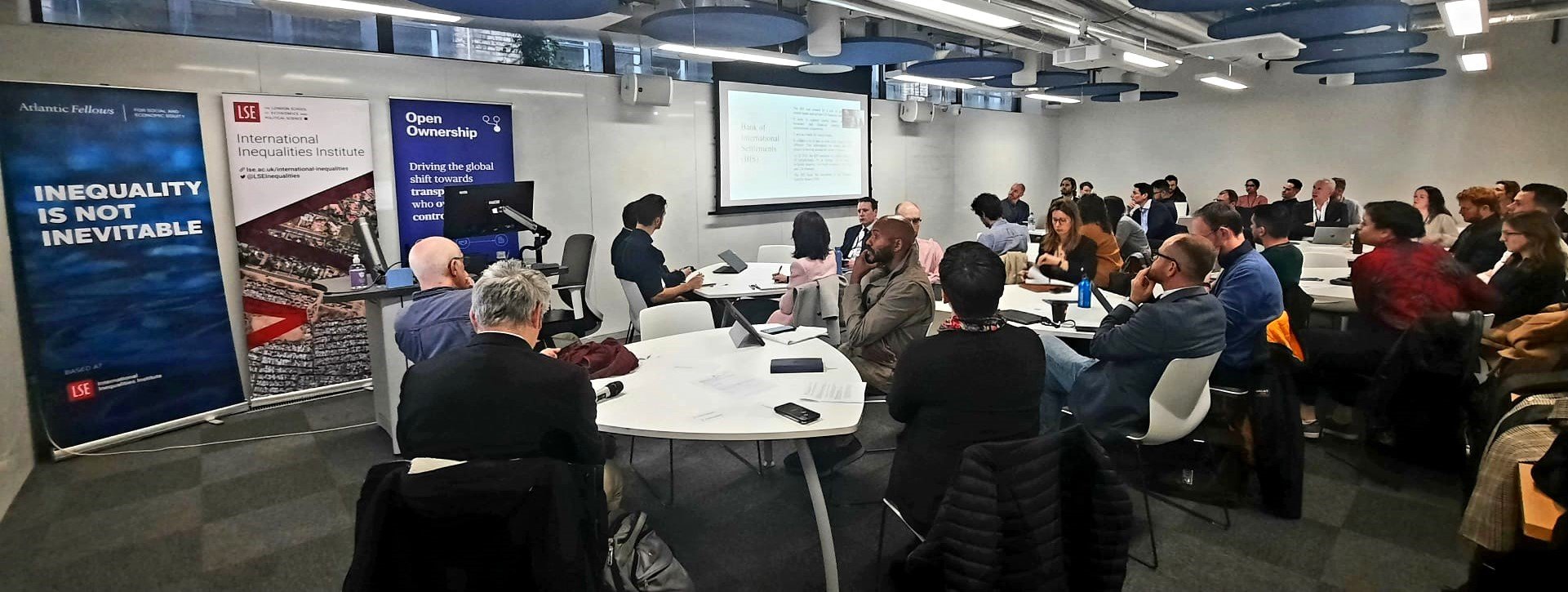Symposium on systems of financial secrecy summary report
Introduction

In February 2024, Open Ownership and the London School of Economics (LSE) International Inequalities Institute (III) co-organised a Symposium on Systems of Financial Secrecy, with support from the Atlantic Fellows for Social and Economic Equity.
The symposium gathered some 50 people in London, UK, and over 100 attendees online, convening academics and practitioners working on a cross-section of issues relating to systems of financial secrecy. By systems of financial secrecy we mean the structures, actors and practices that allow activities such as tax avoidance, tax evasion and money-laundering to take place and to go undetected.
Presenters shared recent and ongoing research and discussed relevant policy developments. The symposium curated speakers from across multiple disciplines and sectors with the aim of identifying and strengthening linkages between different approaches to research and practice on financial secrecy.
The day opened with a welcome from Professor Mike Savage, Martin White Professor of Sociology at the LSE. The first session aimed to set the scene, providing the context and background for discussing systems of financial secrecy. It was moderated by Louise Russell-Prywata, Deputy Executive Director of Open Ownership. This was followed by a session on understanding the UK’s global role in financial secrecy, and evaluating current and future policy solutions. The second session was moderated by Rachel Davies, Transparency International UK’s Advocacy Director. Thom Townsend, Executive Director of Open Ownership moderated the third session which focused on sanctions and national security. This was followed by the final session of the day, which Victoria Gronwald, PhD Researcher at the LSE moderated. The topic of the fourth session was taxation, corruption, and public funds.
Please find the agenda, biographies of speakers, presentation abstracts and research links here and a selection of photos from the day here. This report aims to reflect as accurately as possible speakers’ presentations on the day. It does not reflect the opinions of the organisers.